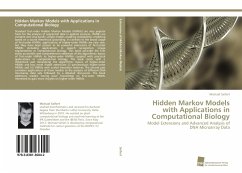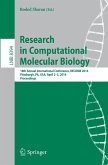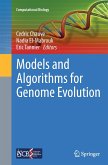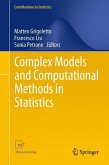Standard first-order Hidden Markov Models (HMMs) are very popular tools for the analysis of sequential data in applied sciences. HMMs are versatile and structurally simple models enabling probabilistic modeling based on a sound theoretical grounding. In contrast to the broad usage of first-order HMMs, applications of higher-order HMMs are very rare, but they have been proven to be powerful extensions of first-order HMMs including applications in speech recognition, image segmentation or computational biology. This book provides the first easily accessible and comprehensive extension of the algorithmic basics of first-order HMMs to higher-order HMMs coupled with practical applications in computational biology. The book starts with a theoretical part developing the algorithmic basics of higher-order HMMs and two novel model extensions (i) parsimonious higher-order HMMs and (ii) HMMs with scaled transition matrices. The second part considers applications of these models to the analysis of different DNA microarray data sets followed by a detailed discussion. The book addresses readers having basic knowledge on first-order HMMs interested to gain more insights on higher-order HMMs.
Bitte wählen Sie Ihr Anliegen aus.
Rechnungen
Retourenschein anfordern
Bestellstatus
Storno








